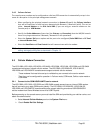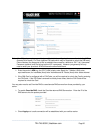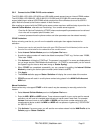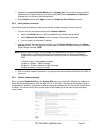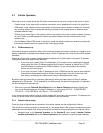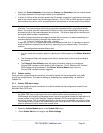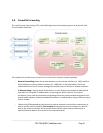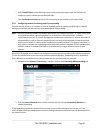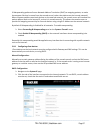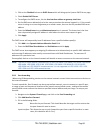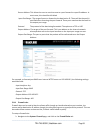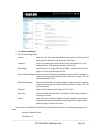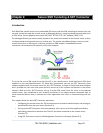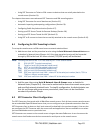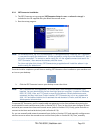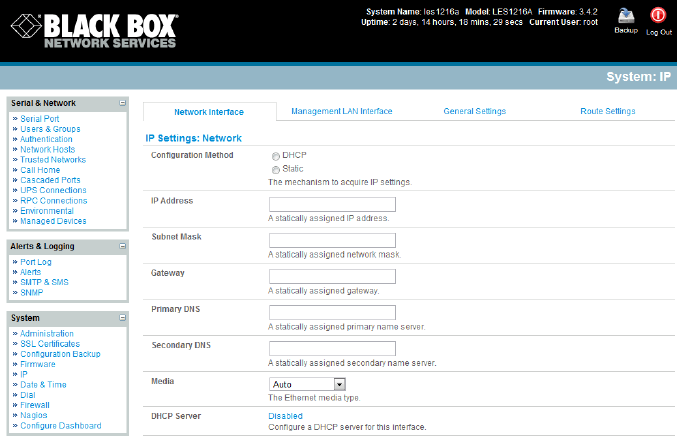
IP Masquerading performs Source Network Address Translation (SNAT) on outgoing packets, to make
them appear like they've come from the console server (rather than devices on the internal network).
When response packets come back devices on the external network, the console server will translate the
packet address back to the internal IP, so that it is routed correctly. This allows the console server to
provide full outgoing connectivity for internal devices using a single IP Address on the external network.
By default IP Masquerading is disabled for all networks. To enable masquerading:
Select Forwarding & Masquerading panel on the System: Firewall menu
Check Enable IP Masquerading (SNAT) on the network interfaces where masquerading is be
enabled
Generally this masquerading would be applied to any interface that is connecting with a public network
such as the Internet.
5.8.2 Configuring client devices
Client devices on the local network must be configured with Gateway and DNS settings. This can be
done statically on each device, or using DHCP.
Manual Configuration:
Manually set a static gateway address (being the address of the console server) and set the DNS server
address to be the same as used on the external network i.e. if the console server is acting as an internet
gateway or a cellular router, then use the ISP provided DNS server address.
DHCP Configuration:
Navigate to the System:IP page
Click the tab of the interface connected to the internal network. To use DHCP, a static address
must be set; check that the static IP and subnet mask fields are set.
_____________________________________________________________________
724-746-5500 | blackbox.com Page 97



